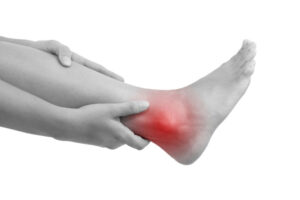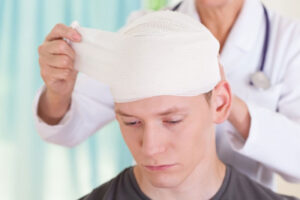Many people get injuries or suffer from pain associated with sports, exercise, or other physical activities. Symptoms such as back, neck, and shoulder pain as well as problems affecting the knees, elbows, and other body parts may all be connected to sports. For many such symptoms, the best course of action is to consult a sports medicine specialist. People seeking this type of specialist may be seeking relief from pain or repetitive motion issues. Let’s explore what sports medicine specialists do and how they can help patients.
What is a Sports Medicine Specialist?
 Sports medicine specialists are physicians with training in areas related to treating and preventing injuries and health issues associated with sports, exercise, or strenuous physical activity. Sports Medicine is recognized as a medical subspecialty by Medicare and the American Board of Medical Subspecialties. Sports medicine specialists may be board certified in specialties such as:
Sports medicine specialists are physicians with training in areas related to treating and preventing injuries and health issues associated with sports, exercise, or strenuous physical activity. Sports Medicine is recognized as a medical subspecialty by Medicare and the American Board of Medical Subspecialties. Sports medicine specialists may be board certified in specialties such as:
- Orthopedics
- Internal Medicine
- Emergency Medicine
- Family Medicine
- Physical Medicine
- Pediatrics
In order to qualify as sports medicine specialists, physicians must pass a Sports Medicine certification examination. They must be re-certified every 10 years.
What Does a Sports Medicine Specialist Do?
Sports medicine specialists may work with a wide variety of patients, from professional athletes to ordinary people who injure themselves at the gym. They may also treat people who hurt themselves at work or who have suffered accidents. Some sports medicine physicians consult for school or professional sports teams. They may work on teams that include other specialists such as primary care physicians, nutritionists, or other types of specialists. Here are some of the common tasks performed by sports medicine specialists.
Examinations
The first step is to diagnose the condition. This may include:
- Asking the patient to describe his or her symptoms.
- Checking for swelling, bruising, or tenderness.
- Checking the range of motion for joints and limbs. Stiffness or limited motion is a common symptom of sports injuries.
- X-rays, MRIs, CT scans, and ultrasound may be used to determine if there are breakages or tissue damage.
Designing Rehabilitation Strategies
When someone has an injury or chronic condition, he or she needs a rehabilitation program to facilitate healing and prevent any further damage.
- Certain exercises are beneficial for helping patients recover. People are guided to perform the proper movements while avoiding exercises that are likely to cause further harm. Physical therapists or athletic trainers may be consulted as well.
- Nutritional Guidance. Proper nutrition is part of the rehabilitation process. Sports medicine specialists may recommend a certain diet along with appropriate supplements. They may also consult with nutritionists.
- Prescribing medication. In some cases, medication may be prescribed for pain relief or other reasons. Medication may also be administered via therapeutic injections.
Ongoing Consultation With Patients
An important role for sports medicine specialists is to consult with patients to keep track of their progress. When it comes to sports and other injuries, the recovery process can be accelerated or delayed by many factors. For example, if a patient starts walking on an injured ankle sooner than the physician recommends, it can cause a serious setback. So sports medicine doctors stay in close contact with patients, track their progress, and make further recommendations based on feedback.
Conditions Sports Medicine Specialists Treat
Sports medicine specialists treat a wide variety of conditions. Here are some of the issues these type of doctors commonly treat:
 Sprains and Strains
Sprains and Strains
Sprains and strains are among the most common ailments experienced by athletes as well as everyday people who exercise or play sports. Muscles may be strained due to overexertion or moving in an awkward manner. A strain, also known as a pulled muscle, involves the tearing or overstretching of muscles or tendons. A sprain involves tearing or overstretching ligaments such as the ankle. For sprains and strains treatment may include:
- Advice on self-care treatments such as rest, ice packs, compression, and elevation.
- Recommend crutches, bandages, ankle support braces, or other appropriate devices or aids.
- Your doctor may recommend certain therapeutic exercises. For severe cases, a physical therapist may be recommended to help you.
- If ligaments don’t heal properly, surgery may be required.
Back, Neck, and Shoulder Pain
Athletic activities often result in pain to the back, neck, and/or shoulders. Such injuries can cause anything from mild discomfort to excruciating pain. Sports medicine doctors may recommend a variety of treatments for such conditions. After diagnosing the condition, doctors may recommend a variety of treatments.
- Check for factors that might cause or contribute to pain such as fractures, arthritis, or a misalignment of the spine.
- Recommendations for better posture or technique to reduce strain on the back, neck, or shoulders.
- If relevant, recommendation to lose weight as being overweight can be a factor with back pain.
- Medication to control pain.
- In some cases, surgery may be recommended for spinal injuries.
Overuse Injuries and Tendonitis
Athletes and people who regularly play certain sports often get injured due to overusing certain body parts. For examples, people who play tennis or other racket sports often get tennis elbow. Other examples include baseball pitchers injuring their elbows, swimmer’s shoulder, and joggers or runners with knee injuries. These type of injuries often fall into the category of tendonitis, as they involve inflammation of tendons such as elbows and knees.
- Advise patient on duration of rest period.
- Suggest improvements in technique to reduce the recurrence of injury. Doctors may also suggest using alternative equipment, changing footwear, or using items such as an elbow brace.
- Recommend physical therapy to accelerate healing of the injury.
 Head Injuries
Head Injuries
Concussions and other head injuries come about as a result of an impact, such as getting hit by a ball, colliding with another player, or falling to the ground. Athletes who play contact sports such as football, basketball, rugby, hockey, and combat sports such as boxing, wrestling, and martial arts are particularly at risk for head injuries. People who suffer from concussions must be carefully examined as the extent of the damage is not always obvious.
While emergency medical technicians (EMTs) may initially treat concussions, sports medicine specialists often monitor progress and advise patients on a recovery strategy. Other specialists such as neurologists and radiologists may also be consulted.
Other Sports-related Medical Conditions
Sports medicine doctors may also treat, advise, or make referrals regarding other medical issues that are related to athletics such as:
- Cardiac issues: Existing heart conditions can put athletes and others at risk during physical activity. Heat stroke. Heat or sunstroke can occur when people overexert themselves in hot weather.
- Eating disorders: Athletes may be at risk for eating disorders such as anorexia and bulimia.
Get the Help You Need from a Sports Medicine Specialist
Sports medicine specialists can help you recover more quickly from injuries, prevent setbacks, and provide you with helpful advice on how to avoid hurting yourself in the future. You don’t have to be a professional athlete to consult one of these specialists. Whether you’re a school athlete, a weekend warrior, or someone who may have suffered an injury or muscle pull while jogging or at the gym, guidance from a medical professional will speed your recovery.

